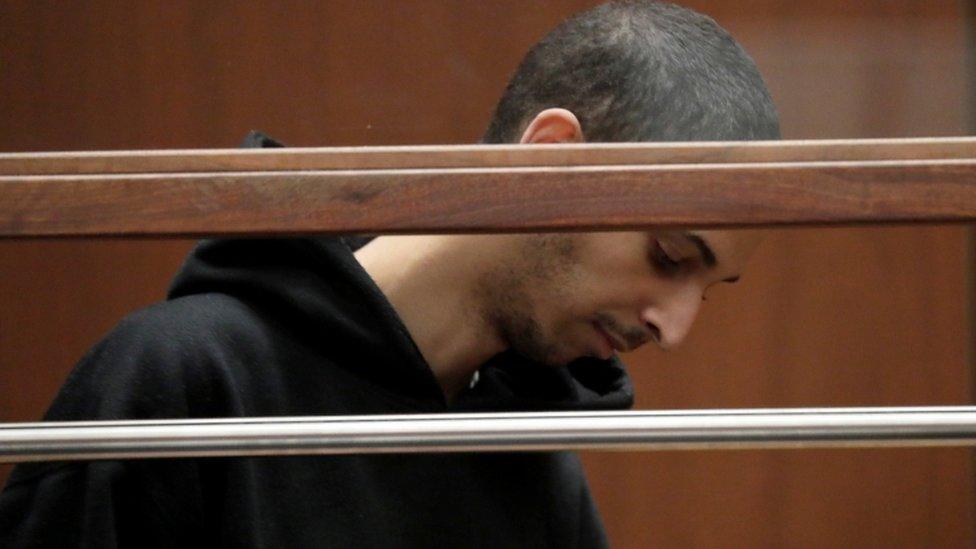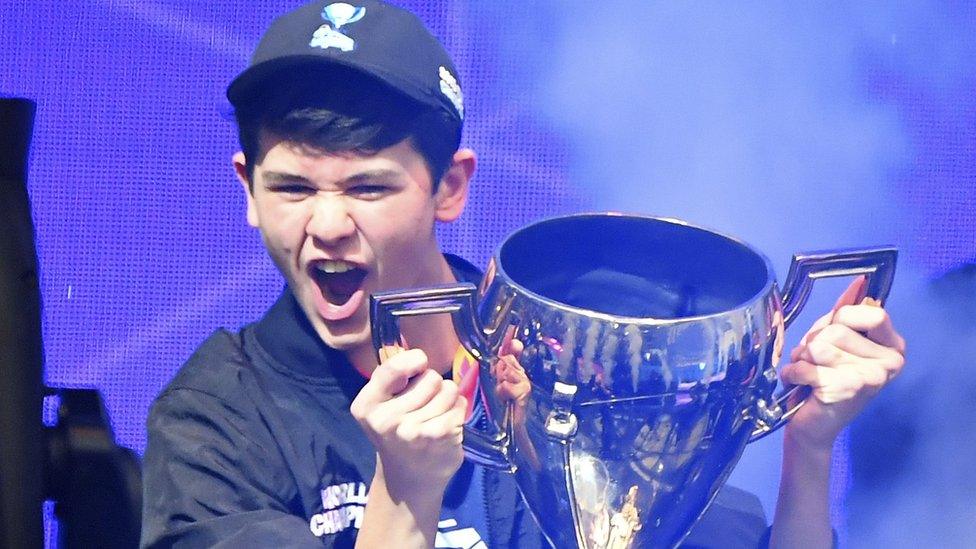Casey Viner: Teenage US gamer jailed over deadly 911 hoax
- Published
Listen to the horrifying 911 call that led to a man's death
A US teenager has been jailed for 15 months for involvement in a prank call leading to an innocent man's death.
Casey Viner, 19, from Ohio, conspired with fellow gamer Tyler Barriss to make a so-called "swatting" call to police.
In the 911 call, Barriss claimed he was holding his family hostage but when police visited the address provided, they shot father-of-two Andrew Finch.
The two men admitted to making the call after a row with another gamer, Shane Gaskill, while playing Call of Duty.
Allow X content?
This article contains content provided by X. We ask for your permission before anything is loaded, as they may be using cookies and other technologies. You may want to read X’s cookie policy, external and privacy policy, external before accepting. To view this content choose ‘accept and continue’.

Bariss was sentenced earlier this year to 20 years behind bars.
In court, Viner pleaded guilty to conspiracy and obstruction of justice. After his sentence he will be banned from gaming for two years.
Viner said he was "awfully sorry", that he never intended anything to happen and he thinks of it every day.
"We impose sentences not only for what people intend, but what happened," said US District Judge Eric Melgren.
How did a prank call kill an innocent man?
A "swatting" call is a hoax phone call designed to make special weapons and tactics (Swat) police raid a target's house.
On 28 December 2017, Barriss told police he had shot his father and was holding the rest of his family hostage.

Tyler Barriss pleaded guilty to a total of 51 charges
He gave police what he thought was Mr Gaskill's address in Kansas.
However, the address provided by Mr Gaskill was not his own but that of Mr Finch, 28.
Armed police went to the property and shot dead Mr Finch, who had no involvement in the video game dispute.
Police say the responding officer shot Mr Finch after he moved his hands towards his waist.
US Attorney Stephen McAllister described swatting as "reckless, dangerous and, as this case proves, potentially tragic".
The police officer involved was not charged as there was not enough evidence to show they acted unreasonably considering the context.
"Swatting is not a prank, and it is no way to resolve disputes among gamers," Mr McAllister added, calling on gamers to "self-police their community to ensure that the practice of swatting is ended once and for all".
- Published1 April 2019

- Published12 August 2019

- Published23 February 2018
